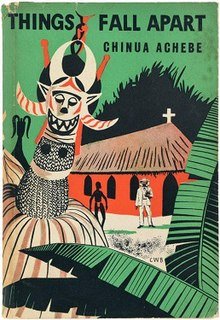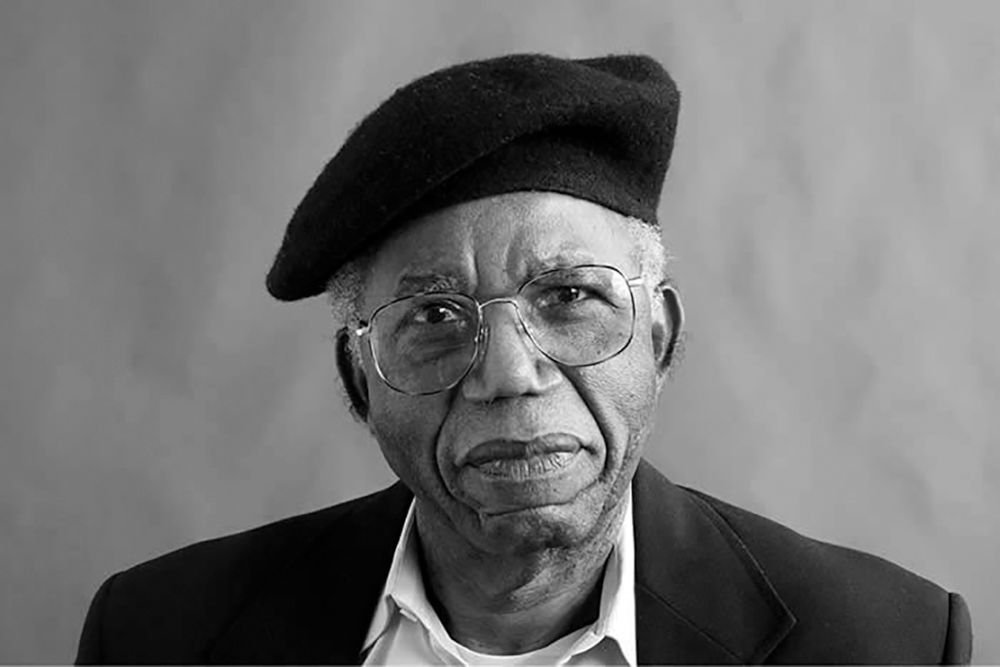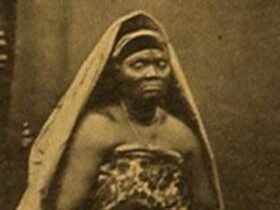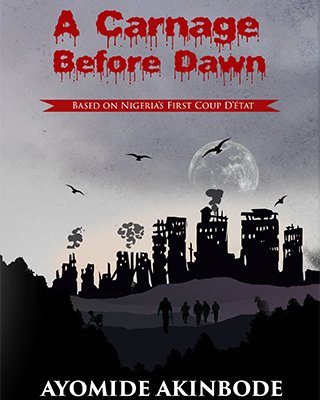No products in the cart.

Nigeria’s Chinua Achebe (November 16, 1930 – March 21, 2013) is considered by many critics and experts to be one of the most influential African writers of his generation. His books, including the novel Things Fall Apart, have exposed the world’s readers to the imaginative uses of language and form, as well as to the realistic accounts of modern African life and history.
Not only through his literary contributions, but also through his promotion of ambitious agendas for Nigeria and Africa, Achebe helped to reshape the understanding of African history, culture, and place in world affairs.
Although he won many prizes and awards, Chinua Achebe never won the Nobel Prize in Literature. Why is this so? We shall find out in the course of this article.
Contents
Early Life and Education
Chinua Achebe was born, Albert Chinualumogu Achebe, in the Igbo town of Ogidi, now Anambra State, in Eastern Nigeria, on November 16, 1930. He was the fifth child of Isaiah Okafor Achebe and Janet Iloegbunam Achebe. His father was a teacher in Christian catechism at the Church Missionary Society.

Nigeria was a British protectorate in the early years of Achebe and educated English-speaking families like the Achebes had a privileged role in Nigeria’s power system.
Chinua Achebe attended the Church Missionary Society School where Igbo was the primary language of instruction for the first two years. At around eight, he started to learn English. His relatively late introduction to English helped Achebe to develop a sense of cultural pride and appreciation of his native language — values that might not have been developed had he been brought up and taught entirely in English.
Achebe’s home fostered his knowledge of both cultures. He read books in his father’s library in English and spent hours listening to his mother and sister share traditional Igbo tales.
At 14, Chinua Achebe was chosen to attend the Government College in Umuahia, an equal university preparatory school and considered the best in West Africa. He excelled in his studies and after graduating at the age of 18, he was admitted to study medicine at the new University College at Ibadan, then a part of the London University.
The demand for trained Nigerians in the government escalated because Nigeria was preparing for self-rule and independence.
Chinua Achebe’s Writings
It was only with a college degree that Nigerians were likely to join higher ranks in the civil service. Nigeria’s rising nationalism had not been lost to Achebe. At the university, he dropped his English name Albert in favour of the Igbo name Chinua a short term for Chinualumogu, which is translated as My God battles for me.
At Ibadan, Achebe turned to liberal arts, including History, Religion and English. However, because he changed his profession, he lost his scholarship and had to pay school fees. His older brother Augustine supported him from his job as a civil servant so that he could pursue his studies.

From its inception, the college at Ibadan had a large Faculty of Arts, including many prominent authors among its alumni. Others include Nobel Prize winner, Wole Soyinka, author and playwright, John Pepper Clark and poet, Christopher Okigbo.
Elechi Amadi was also another famous writer who taught at the university in the 1950s, although he was in the Faculty of Sciences.
His first published stories appeared in a student journal, The University Herald. These stories have been reprinted in the 1972 collection of Girls at War and Other Stories.
Of his student writings, only a few are important to his more mature works; short stories such as Marriage is a Private Affair and Dead Man’s Road discuss the contradictions that occur when Western culture meets African society.
Military Coups and Civil War
In 1953, after graduating with a Bachelor of Arts degree, Chinua Achebe entered the Nigerian Broadcasting Corporation as a producer of radio talk. He then went to London in 1956 to join the British Broadcasting Corporation (BBC) Staff School.
While in London, he submitted a manuscript for Things Fall Apart to a publisher with the help and encouragement of one of his BBC mentors, a writer, and a literary critic. The novel was published in 1958 by Heinemann, a publishing house that started a long association with Chinua Achebe and his work. Fame arrived almost immediately and Achebe said he had never known the life of a struggling writer.

Upon his return to Nigeria, Chinua Achebe rose rapidly within the Nigerian Broadcasting Corporation. As the founder and director of the Voice of Nigeria in 1961, Achebe and his colleagues set out to establish more national identity and unity through radio programs that highlighted Nigerian affairs and culture.
Continuing his friendship with Heinemann, Chinua Achebe wrote four other novels: No Longer at Ease (the 1960s sequel to Things Fall Apart), Arrow of God (1964), A Man of the People (1966), and Anthills of the Savannah (1987).
The chaos in Nigeria from 1966 to 1972 was matched by the chaos for Achebe. Some junior officers in the Nigerian army staged a coup d’etat on January 15, 1966, which installed Major-General Johnson Thomas Umunnakwe Aguiyi-Ironsi as Nigeria’s first military Head-of-State.
Six months later, another coup overthrew the Ironsi government and Achebe was targeted by this new government for repression, recognising that his views were unsympathetic to the new regime. Achebe fled to Nsukka in Eastern Nigeria and became a senior research fellow at the University of Nigeria, Nsukka.
On May 30, 1967, the eastern part of Nigeria proclaimed independence as the Republic of Biafra. This incident sparked thirty months of a brutal civil war, which ended only when the Biafran Head-of-State, Chukwuemeka Ojukwu fled the country. Achebe equally fled to Europe and the United States of America, where he wrote and spoke about the affairs of Biafra.
Professorship and Literary Career
Chinua Achebe also wrote and published several children’s books that express his rudimentary views in forms and language understandable to young readers.
In addition to his writing work, Achebe continued to pursue a successful teaching career. He was appointed to a three-year visiting professorship at the University of Massachusetts at Amherst in 1972 and to a one-year visiting professorship at the University of Connecticut in 1975.
In 1976, he returned to Nigeria as a professor of English at the University of Nigeria, Nsukka, with which he had been associated since 1966. In 1990 he was named the Charles P. Stevenson, Jr., Professor of Literature at Bard College, Annandale, New York.
Chinua Achebe also won numerous distinctions from academic and cultural organizations around the world. He received the Margaret Wong Memorial Award for Things Fall Apart in 1959. The following year, after the release of his sequel, No Longer At Ease, he was awarded the Nigerian National Literature Trophy.
His poetry novel, Christmas in Biafra, published during the Nigerian Civil War, won the first Commonwealth Poetry Prize in 1972. More than 20 universities in the United Kingdom, Canada, Nigeria, and the United States have awarded honourary degrees to Achebe.
Chinua Achebe twice declined the Nigerian award of Commander of the Federal Republic (CFR) in 2004 and 2011.
The Nobel Prize in Literature Conundrum
Despite all these awards, Achebe never won the Nobel Prize in Literature. When Wole Soyinka was awarded the 1986 Nobel Prize in Literature, Chinua Achebe joined the rest of Nigeria in celebrating the first African ever to win the prize. He lauded Soyinka’s “stupendous display of energy and vitality”, and said he was “most eminently deserving of any prize”.
In 1988, when Achebe was asked how he felt about never winning a Nobel Prize; he replied that although the Nobel Prize was important, it was a European prize, not an African one.
However, the Swedish Academy has been continuously criticized for the award. While some critics argue that several well-known writers were not even nominated, let alone granted the prize, others argue that some recipients of the award did not deserve it.
When all of this is taken into account, it’s difficult to understand why Achebe’s literary fate is linked to a prize named after Alfred Nobel. Those who believe Achebe’s personality has been tarnished as a result of his failure to win the Nobel Prize have completely ignored the work Achebe set out to complete for Africa.

Achebe was unarguably Nigeria’s greatest export to the literary world. And in an intellectual or ideological sense, he was self-made. Interestingly, he made others too.
Following the publication of his path-breaking Things Fall Apart, he helped established the Heinemann Group’s African Writers Series, which published other African writers, like Flora Nwapa, with the goal of correcting European writers’ supremacist scorn for the African continent. Chinua Achebe has influenced nearly every notable African writer who has been published since the 1960s.
Writing his stories from an African eye instead of glorifying European or Western values might have denied Achebe the Nobel Prize in Literature.
Marriage, Family, and Death
On September 10, 1961, Chinua Achebe married Christiana Chinwe (Christie) Okoli in the Chapel of Resurrection on the campus of the University of Ibadan.
Their first child, Chinelo, a daughter, was born on July 11, 1962. A son, Ikechukwu followed on December 3, 1964, and Chidi, another son, on May 24, 1967. After the Nigeria-Biafra War, another daughter, Nwando Achebe arrived on March 7, 1970.
On March 21, 2013, Chinua Achebe died in Boston, Massachusetts, United States of America. He was 82.
If you liked this article, then please subscribe to our YouTube Channel for interesting historical videos and follow us on all our social media handles. Don’t hesitate to as well share this article with your friends.
Sources
Alicho V. (2013). Achebe And The Quest For Nobel Prize. Retrieved from https://www.vanguardngr.com/2013/05/achebe-and-the-quest-for-nobel-prize/
Britannica, T. Editors of Encyclopaedia (2021, March 17). Chinua Achebe. Encyclopedia Britannica. https://www.britannica.com/biography/Chinua-Achebe
British Council (n.d). Chinua Achebe. Retrieved from https://literature.britishcouncil.org/writer/chinua-achebe
Ezeh, P. (2013). Why Achebe was denied the Nobel Prize! Retrieved from https://newafricanmagazine.com/3752/
Leave a Reply
You must be logged in to post a comment.








Leave a Reply
View Comments